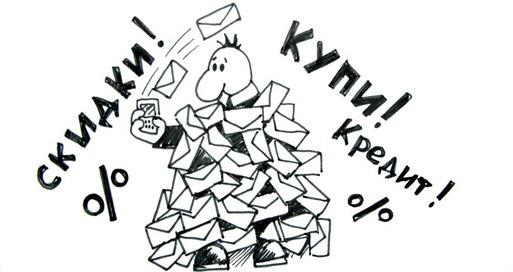Say no to sms spam: sms through application authorization

I will not be mistaken if I say that everyone is terribly sick of sms-spam. Yes, for many companies this is the source of customers, but this does not justify the "gray" methods of advertising. And about the sms-fraud "Mom, the money came, lost the phone" and say no.
On Habré there were already many articles about the fight against sms-spam, but, in my opinion, complaints about a particular company or phone are akin to sifting water through a sieve. But, as it seems to me, this question could be solved relatively easily by mobile operators. Under the cut, the description of the idea-proposal to our big three, as well as any other sms-gateways.
Problem
Sms appeared a long time ago, and since then the principles of using them have not changed much. Anyone can send sms to another person. Any company can use the services of an sms-gateway and send sms to any number.
Yes, there are some steps to limit such mailings.
1. Megaphone does not accept sms from short numbers.
2. Laws are being prepared to conclude an agreement with the operator for the distribution.
3. MTS (and some others) allows you to create a blacklist of subscribers.
But all of this, in fact, does not at all concern spam, which most often comes from unknown ordinary numbers, most often different. In addition, for example, blocking the sms-gateway number can be disadvantageous, since it can be used by honest companies.
Decision
The problem with sms is that there is almost no possibility to separate organizations and ordinary people. And the existing laws on limiting the symbolic addresses of the sender only worsen the situation (now even honest companies should appear as a regular number).
And I want to compare them with social networks - there are applications and users. Yes, users can also send spam (which can be quite effectively monitored, as there is a list of friends), but for honest companies there is no need to do that.
And if before sms were the most popular text messenger, now for most it is a way to confirm payment or authorization / registration on the site.
Based on current realities, a specific sentence:
Plan
1. Enter the white list of numbers to mobile operators. For convenience, you can synchronize it with your phone's address book (for example, through a special application or from a SIM card).
2. Introduce the concept of “Application” for organizations wishing to send sms to a person.
3. Make a mandatory request for rights to access the sms mailing list.
4. The person gives the phone number to the application, and the application requests rights.
5. To issue access rights to the sms mailing list in two ways:
a) Send sms exclusively from the operator himself with the text “Appendix X asks you to allow you to send 10 sms per day, a code to allow the operation”. After that, the service contacts the server of the mobile operator and informs it of the received code, which is consent to receive sms.
b) Authorization on the mobile operator’s website and pressing the “Allow” button (in fact, OAuth authorization).
')
Perhaps the solution would also be to create a third-party mobile application that only allows authorized sms to pass through, but such an application would have to quickly capture the market so that companies began to request authorization through it, and mobile operators are clearly more interested in this.
Service, of course, should be optional, but an additional service. I think the value of this service for many will be much higher than the ability to receive sms from unknown numbers. In any case, the choice is always better than its absence. Personally, I have a number for banks, social networks and other services (on the phone-brick) and I absolutely do not need other SMS to it.
Source: https://habr.com/ru/post/224691/
All Articles